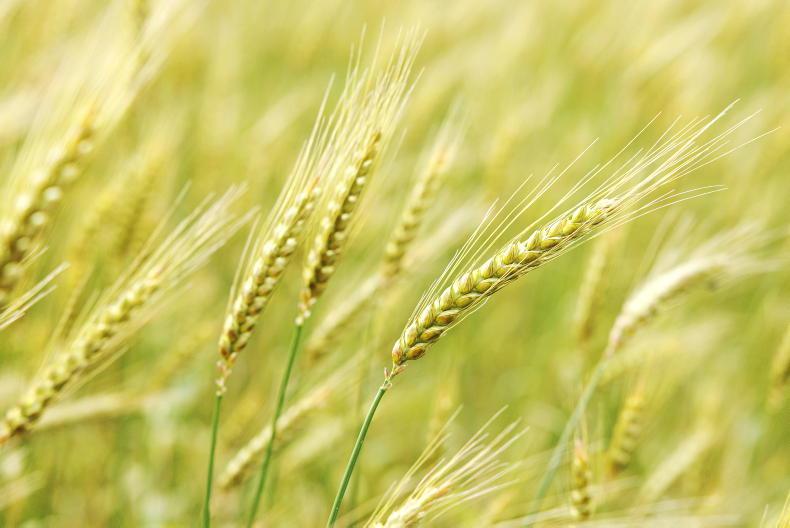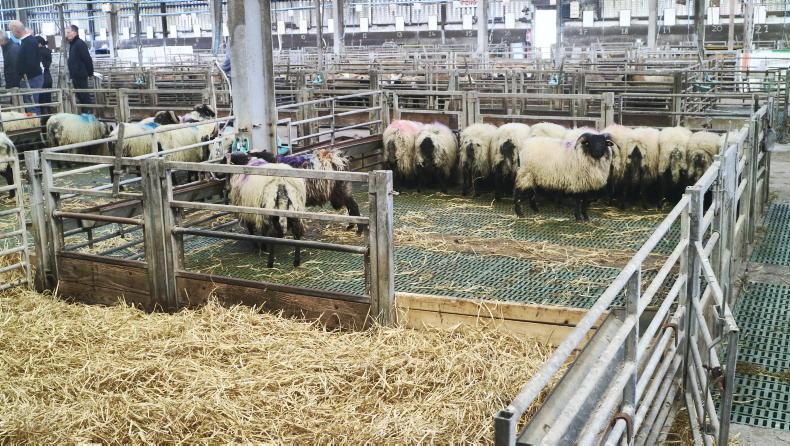The organic farming sector in Ireland continues to grow with over 5,000 farmers now participating in the Organic Farming Scheme and plans to increase the area farmed organically to 10% of utilisable agricultural area by 2030.
Within these 5,000 participants, there is in excess of 700 farms entering in to their two-year conversion phase in 2025 with over 1,000 more farmers now in year two of their conversion period.
The following are some tips for farmers who joined the OFS in 2025.
Training course: any applicant who has not already participated in Supplementary Measure 6 (SM6) of REPS 1, REPS 2 or REPS 3 or previous OFS must successfully complete an approved 25-hour organic production principles training course and upload the formal Certificate of successful completion on the on-line OFS Application System on or before 1 October 2025.
The course is offered by various providers around the country, including Teagasc and the National Organic Training Skillnet (NOTS).
50% bedded area: under organic regulations, at least 50% of the floor area required for animals must be a solid-floored area which is bedded with acceptable materials such as ample straw, litter, wood shavings or rushes.
The remainder of the floor is permitted to be of slatted construction or non-bedded areas, or a combination of both.
Space allowances: the space allowance afforded to animals for organic farming are higher than conventional systems. Calculate stocking density carefully.
Outwintering option: housing isn’t compulsory and animals can be outwintered, but the farm needs to meet nitrates requirements in terms of slurry storage requirements and stocking densities where animals are outwintered.
Purchasing livestock: once you are notified, you have been accepted into the scheme, you can only buy organic or in-conversion stock.
There is a derogation which may be granted by your organic certification body which permits the purchase of breeding animals (up to 20% replacements which have not previously lambed) where it is deemed organic animals of such type cannot be sourced. This is granted by your certifying body.

Certain veterinary medicines are allowed under strict conditions if advised in your veterinary plan. / Philip Doyle
Animal health: the use of veterinary medicines is only permitted on animal welfare grounds and where recommended by your vet.
Withdrawal periods are typically doubled and there is a maximum timeframe/number of treatments before animals will be excluded from entering the organic food chain. Areas where veterinary medicines are likely to be required will be addressed in your animal health plan which must be signed off on by a vet.
Castration of bovine livestock over six months of age and dehorning of livestock over six months will result in the loss of organic status for the individual livestock.
TAMS grant aid: grant aid of up to 60% is available for organic farmers participating in the Organic Farming Scheme under the Targeted Agricultural Modernisation Scheme. In addition to standard items in conventional farming systems, the Organic Farming Capital Investment Scheme also provides grant aid for specialised equipment and machinery.
Stocking rate: payment will be made on the basis of meeting ANC requirements – ie, a minimum stocking rate of at least 0.1 LU/ha per eligible forage hectare over the calendar year and a similar minimum stocking rate for a retention period of at least 28 weeks. Participants not meeting ANC requirements will not receive any area based payments.
Nutrient imports: OFS participants can import organic manures but only from grass-based systems – ie, confinement systems such as pig or poultry are not eligible to import organic manures from but dairy, beef and sheep are eligible.
Spraying prohibited: the use of herbicides and pesticides is strictly prohibited. Rush management must take the form of topping, improving soil pH, drainage, crop rotation etc.
Conventional sales: organic markets are being developed which will hopefully help to provide a premium. There is currently no mandatory requirement to sell stock into organic markets under the OFS.

Organic farmers are advised to source feed by linking up with tillage producers or growing their own crops. \ Donal O'Leary
Organic feed: ruminant stock post-weaning must be fed a diet of at least 60% roughage. Tillage crops should be considered as a cost-effective alternative to buying concentrates and bedding. Farmers should strive to source feed grown in Ireland and critically assess the quality of feed being marketed with some mediocre feed imported.
The organic farming sector in Ireland continues to grow with over 5,000 farmers now participating in the Organic Farming Scheme and plans to increase the area farmed organically to 10% of utilisable agricultural area by 2030.
Within these 5,000 participants, there is in excess of 700 farms entering in to their two-year conversion phase in 2025 with over 1,000 more farmers now in year two of their conversion period.
The following are some tips for farmers who joined the OFS in 2025.
Training course: any applicant who has not already participated in Supplementary Measure 6 (SM6) of REPS 1, REPS 2 or REPS 3 or previous OFS must successfully complete an approved 25-hour organic production principles training course and upload the formal Certificate of successful completion on the on-line OFS Application System on or before 1 October 2025.
The course is offered by various providers around the country, including Teagasc and the National Organic Training Skillnet (NOTS).
50% bedded area: under organic regulations, at least 50% of the floor area required for animals must be a solid-floored area which is bedded with acceptable materials such as ample straw, litter, wood shavings or rushes.
The remainder of the floor is permitted to be of slatted construction or non-bedded areas, or a combination of both.
Space allowances: the space allowance afforded to animals for organic farming are higher than conventional systems. Calculate stocking density carefully.
Outwintering option: housing isn’t compulsory and animals can be outwintered, but the farm needs to meet nitrates requirements in terms of slurry storage requirements and stocking densities where animals are outwintered.
Purchasing livestock: once you are notified, you have been accepted into the scheme, you can only buy organic or in-conversion stock.
There is a derogation which may be granted by your organic certification body which permits the purchase of breeding animals (up to 20% replacements which have not previously lambed) where it is deemed organic animals of such type cannot be sourced. This is granted by your certifying body.

Certain veterinary medicines are allowed under strict conditions if advised in your veterinary plan. / Philip Doyle
Animal health: the use of veterinary medicines is only permitted on animal welfare grounds and where recommended by your vet.
Withdrawal periods are typically doubled and there is a maximum timeframe/number of treatments before animals will be excluded from entering the organic food chain. Areas where veterinary medicines are likely to be required will be addressed in your animal health plan which must be signed off on by a vet.
Castration of bovine livestock over six months of age and dehorning of livestock over six months will result in the loss of organic status for the individual livestock.
TAMS grant aid: grant aid of up to 60% is available for organic farmers participating in the Organic Farming Scheme under the Targeted Agricultural Modernisation Scheme. In addition to standard items in conventional farming systems, the Organic Farming Capital Investment Scheme also provides grant aid for specialised equipment and machinery.
Stocking rate: payment will be made on the basis of meeting ANC requirements – ie, a minimum stocking rate of at least 0.1 LU/ha per eligible forage hectare over the calendar year and a similar minimum stocking rate for a retention period of at least 28 weeks. Participants not meeting ANC requirements will not receive any area based payments.
Nutrient imports: OFS participants can import organic manures but only from grass-based systems – ie, confinement systems such as pig or poultry are not eligible to import organic manures from but dairy, beef and sheep are eligible.
Spraying prohibited: the use of herbicides and pesticides is strictly prohibited. Rush management must take the form of topping, improving soil pH, drainage, crop rotation etc.
Conventional sales: organic markets are being developed which will hopefully help to provide a premium. There is currently no mandatory requirement to sell stock into organic markets under the OFS.

Organic farmers are advised to source feed by linking up with tillage producers or growing their own crops. \ Donal O'Leary
Organic feed: ruminant stock post-weaning must be fed a diet of at least 60% roughage. Tillage crops should be considered as a cost-effective alternative to buying concentrates and bedding. Farmers should strive to source feed grown in Ireland and critically assess the quality of feed being marketed with some mediocre feed imported.








 This is a subscriber-only article
This is a subscriber-only article










SHARING OPTIONS: